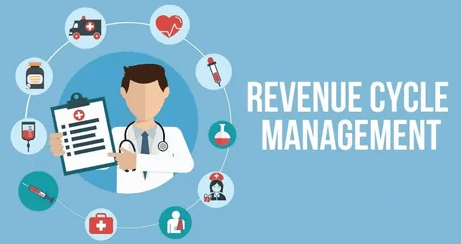Navigating the Complex World of Medical Billing: A Comprehensive Guide
Understanding the Basics of Medical Billing: An Introduction
The introduction to medical
This blog will explore essential aspects of medical billing, from terminology to reimbursement processes.
Demystifying the Process of Medical Billing procedures
Navigating the medical billing process requires a clear grasp of its intricate steps, ensuring proper reimbursement and financial stability for healthcare providers. This process can be broken down into several essential stages:
Patient Information Gathering and Verification: Before billing can commence, accurate patient information must be collected and verified. This includes personal details, insurance coverage, and relevant medical history.
Diagnosis and Procedure Coding: For accurate billing, medical procedures and diagnoses are translated into standardized codes (ICD-10, CPT, and HCPCS). Proper coding ensures that services are appropriately categorized and reimbursed.
Claims Submission and Processing: Completed claims are submitted to insurance companies or government programs for review. The claims are evaluated for accuracy and adherence to coverage guidelines.
Adjudication and Payment Determination: Insurance companies evaluate claims through a process called adjudication. They determine reimbursement based on the patient’s coverage, deductibles, and co-pays.
Denial Management and Appeals: Denied claims require careful analysis to identify the reasons for rejection. Providers can then address issues, correct errors, and submit appeals if necessary to ensure rightful reimbursement.
Navigating Insurance Coverage and Verification
Effectively navigating insurance coverage and verification is paramount for patients and healthcare providers. Understanding the nuances of different health insurance plans, from HMOs to PPOs, is essential to making informed medical treatment and service decisions. Verifying insurance information before appointments helps prevent misunderstandings and surprises related to coverage and out-of-pocket expenses. Adequate communication between patients and providers ensures accurate information exchange, reduces claim rejections, and facilitates a smoother billing process. By mastering the intricacies of insurance coverage and verification, individuals can confidently and clearly navigate the complex landscape of healthcare financing.
Essential Aspects of Accurate Coding
Accurate coding is pivotal in the medical billing process. It involves translating intricate medical procedures and diagnoses into standardized codes, such as ICD-10 and CPT. Precise coding ensures proper reimbursement, categorization, and adherence to regulatory guidelines. Staying updated with coding system changes and guidelines is essential to avoid errors that could lead to claim denials or underpayments. Mastery of accurate coding enhances efficiency, reduces billing discrepancies, and contributes to a seamless revenue cycle for healthcare providers.
Challenges in Medical Billing and How to Overcome Them
Navigating the landscape of medical billing comes with its share of challenges that require strategic approaches for resolution:
Denied Claims and Rejections:
Frequent denials due to coding errors or missing information can disrupt revenue flow. Overcoming this challenge involves conducting regular audits, implementing robust coding practices, and establishing clear communication channels with payers to swiftly address and appeal denied claims.
Billing Errors and Compliance Issues:
Only accurate billing can lead to timely payments and compliance concerns. Solutions include investing in advanced billing software for accuracy, implementing stringent quality checks, and adhering to coding and documentation guidelines to prevent errors.
Effective Denial Management:
Efficiently managing denied claims requires a structured approach. This involves identifying patterns of denial, analyzing root causes, implementing corrective measures, and tracking improvements over time.
Patient Billing and Financial Responsibility
Navigating patient billing
Staying Updated with Regulatory Changes and Compliance
Remaining informed about evolving healthcare regulations is vital for maintaining compliance. Healthcare professionals must actively monitor updates in laws such as HIPAA and billing guidelines to ensure patient data security and accurate billing practices. Continuous education, industry workshop participation, and reliable resource utilization help organizations stay current. Adhering to regulations prevents penalties, safeguards patient trust, and maintains the integrity of medical billing practices.
Utilizing Technology and Software in Medical Billing
Incorporating technology and software solutions transforms medical billing processes. Electronic Health Records (EHR) and practice management systems streamline data entry, coding, and claims submissions. Automation enhances accuracy, reduces errors, and expedites revenue cycles. Selecting appropriate software, training staff, and optimizing workflows ensure maximum benefits. Integrating technology optimizes efficiency, accelerates reimbursements, and fosters smoother interactions between healthcare providers and insurance entities.
Best Practices for Efficient Revenue Cycle Management
Streamlining revenue cycles is pivotal for financial health in healthcare. First, optimize patient registration with accurate data collection and insurance verification. Second, employ robust coding practices to prevent errors that lead to claim denials. Third, submit claims promptly, leveraging technology for accuracy and speed. Fourth, monitor denials closely, analyze trends, and implement corrective actions. Fifth, prioritize clear patient communication regarding billing and financial responsibilities. Sixth, adopt electronic payments and automate billing processes for efficiency. Seventh, regularly analyze Key Performance Indicators (KPIs) to identify areas for improvement. Implementing these practices ensures a well-functioning revenue cycle, increased revenue capture, and enhanced operational effectiveness.
Final Thought
In conclusion, comprehending the basics of medical billing is paramount to fostering efficient healthcare operations. The significance of accurate coding, terminology clarity, and understanding the broader role of medical billing cannot be understated. Equipped with this foundational knowledge, healthcare stakeholders are better positioned to navigate the intricacies of reimbursement, communication with patients, and maintaining financial stability. As medical billing remains a cornerstone of the healthcare system, a solid understanding of its fundamentals lays the groundwork for successful, streamlined operations and improved patient experiences








